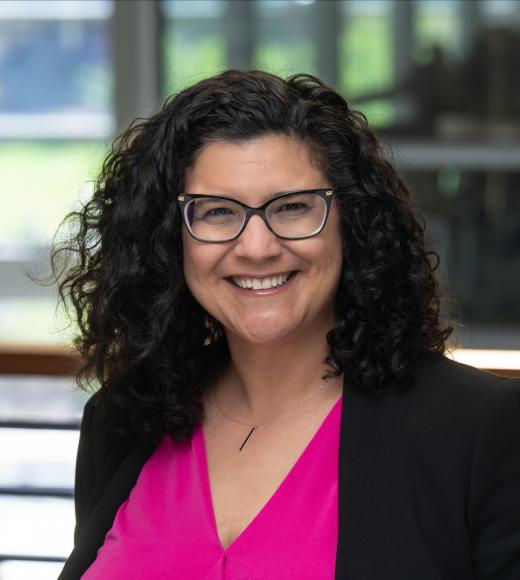International Partnership Agreement Frequently Asked Questions (FAQs)
How do I know if I need an agreement through this process?
This procedure is designed for faculty members interested in embarking on a collaboration with an international university partner, but which do not involve the commitment of university resources or binding contract provisions for purposes of protecting or utilizing intellectual property.
Why must this approval process be followed?
International agreements can be complex and often require multiple stakeholders to provide necessary expertise and input. Global Affairs will triage the agreements and route the agreements to the necessary stakeholders for their input. Additionally, input from the Office of the Campus Counsel, Office of Research, and Global Affairs is required for all international agreements provided to the Chancellor for signature.
How long will the agreement negotiation and approval process take?
The time required to conclude an agreement depends on its complexity, whether or not UC Davis templates are used, and the number and significance of changes proposed by the partner institution. In general, the average turnaround time for agreements is:
- UC Davis templates are used with no changes to terms: 4-6 weeks
- Other templates are used, new drafts requested, or significant changes proposed: 6-20 weeks
What if the collaborating institution wants to use its template instead of the UC Davis template?
UC Davis strongly encourages use of its templates for all international agreements. Alternative templates may be proposed, but may or may not be acceptable without significant revision. All non-UC Davis templates must be closely reviewed, commented on, and approved by the Office of the Campus Counsel and other campus stakeholders. This can result in significant delays.
What if the collaborating institution wants a translated version of the agreement?
It is strongly encouraged that English be the controlling language. For agreements in which English is not the controlling language, a certified translation and backtranslation of the agreement shall be completed. The initiator of the agreement is responsible for procuring the translation and the costs associated with it.
Can a MOU be binding?
Yes. Although the UC Davis MOU template is explicitly non-binding, other MOUs can and often do include binding language which might unknowingly obligate UC Davis and lead to unintended consequences. For this reason, it is imperative that all MOUs receive GA approval prior to signing.
Who is eligible to submit a partnership agreement proposal to Global Affairs through this process?
Agreement proposals can be submitted by any UC Davis faculty, departmental administrator, or Center/Institute Director, with the support of their Chair, Dean, Vice Chancellor, or Vice Provost.
What are some benefits of international agreements?
There are many benefits to formalizing mutually beneficial global collaborations with international agreements, including:
- Formalizing a framework to expand research and educational opportunities;
- Growing opportunities for students, researchers, faculty, and staff to enhance learning experiences and global awareness;
- Heightening the visibility of international collaborations of faculty, schools, and colleges, and measuring the impact of those collaborations; and
- Strengthening research and educational project funding applications with collaboration documentation.
How long are agreements valid?
Depending on the agreement type and whether it is a new partnership or extension of an existing partnership, most agreements are valid for 3-5 years. Each agreement should explicitly state how long it is intended to last.
What is the process for renewing or terminating a partnership?
To renew a partnership, complete the agreement proposal form and submit to Global Affairs. The renewal proposal process is the same as that for new agreements. If the partnership has worked well and the terms of the original agreement remain current with limited or no revisions required, the timeline for approval is fairly short.
Each agreement has a termination clause which specifies the process and notification requirements for termination. If there is a decision to terminate an active agreement prior to its natural expiration, contact Global Affairs for guidance at globalaffairs@ucdavis.edu.
What if there is a dispute about the terms of agreement?
If there is a dispute about the terms agreement or a breach of contract, contact the Office of the Campus Counsel to discuss options for recourse.
What if the partner institution requires a “wet-signature” hardcopy agreement?
Digital signatures are encouraged to expedite the agreement process. However, if an institutional partner requires a hand-signed hardcopy (often referred to as “wet-signature”), the UC Davis faculty or administrator from the unit requesting the MOU will coordinate the signing and exchange of the final document with the international institution. The requesting department or unit is responsible for all shipping costs and logistics.
What is the signature routing process?
The partner institution should sign the agreement first. Once the department received the signed agreement, the Faculty Champion and/or Dean’s Office (or equivalent) will sign if required. Finally, Global Affairs will sign last, completing the routing process.
Who keeps the copies?
One copy of the fully executed agreement remains with the partner institution; one copy is retained by the UC Davis requesting department for its records.
The requesting department will send a scanned copy of the fully executed agreement via email to Global Affairs for recording purposes.
Contact Information

Marianne McClelland
Director of International Agreements
mhmcclelland@ucdavis.edu
(530) 752-8175
